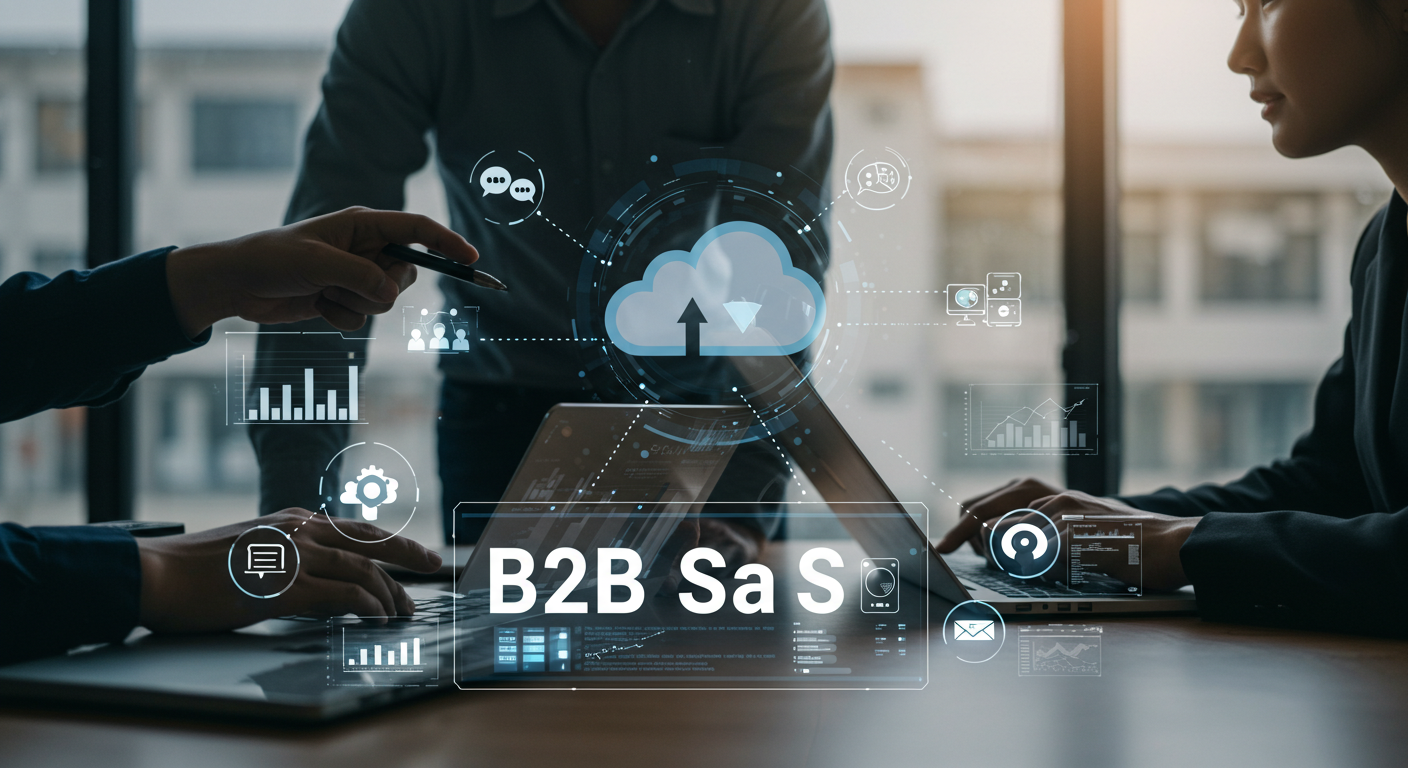In recent years, Business-to-Business Software as a Service (B2B SaaS) has emerged as one of the most significant technological advancements, reshaping how companies operate and collaborate. This article explores B2B SaaS, explaining its core concepts, benefits, key features, and providing insights on how businesses can leverage this model to drive efficiency and growth.
What is B2B SaaS?
B2B SaaS refers to software applications delivered through the cloud to businesses rather than individual consumers. These applications are typically subscription-based and designed to meet the needs of organizations rather than end users. Examples of B2B SaaS include CRM (Customer Relationship Management) software, project management tools, and communication platforms.
Unlike traditional software models that require installation on company servers, B2B SaaS applications are hosted remotely and accessed via the internet, offering greater flexibility and scalability.
Key Characteristics of B2B SaaS
1. Cloud-Based Delivery: B2B SaaS products are hosted on the cloud, meaning businesses do not need to invest in extensive IT infrastructure or worry about maintenance. This setup allows for seamless updates, security patches, and scalability.
2. Subscription Model: Most B2B SaaS companies use a subscription-based pricing model, where businesses pay monthly or annually for access to the software. This provides predictable costs and eliminates the upfront investment required for traditional software.
3. Multi-Tenant Architecture: A single instance of the software can serve multiple clients simultaneously, with each business having its own isolated environment. This allows for efficient resource usage and easier software updates.
4. Accessibility: Since B2B SaaS products are cloud-based, users can access them from any device with an internet connection. This is particularly useful for businesses with remote teams or those that require flexibility in their operations.
Advantages of B2B SaaS
1. Cost Efficiency: B2B SaaS eliminates the need for companies to invest in costly infrastructure, servers, and IT staff. The subscription-based pricing model further ensures that businesses can scale their software usage according to their needs and budget.
2. Scalability: As businesses grow, their needs evolve. B2B SaaS platforms offer flexible subscription plans and can scale up or down to accommodate changing requirements without the need for additional hardware or software installations.
3. Improved Collaboration: B2B SaaS tools are designed to facilitate collaboration within and between teams. Tools like Google Workspace, Microsoft 365, and Slack enable businesses to streamline communication, document sharing, and project management.
4. Continuous Updates and Support: Since SaaS providers handle the software, updates are automatic, ensuring that businesses always have access to the latest features and security improvements. Additionally, most B2B SaaS providers offer customer support, ensuring that businesses have assistance when needed.
5. Security and Compliance: Many B2B SaaS providers offer advanced security features, such as data encryption, multi-factor authentication, and regular backups. These ensure that sensitive business data is protected and compliant with industry regulations like GDPR and HIPAA.
Popular B2B SaaS Products
Some of the most widely used B2B SaaS products include:
- CRM Systems: Tools like Salesforce and HubSpot help businesses manage customer relationships, track sales leads, and analyze customer behavior.
- Project Management Software: Platforms such as Asana, Trello, and Monday.com assist teams in planning, organizing, and monitoring project progress.
- Enterprise Resource Planning (ERP): Software like SAP and Oracle helps businesses manage and integrate key aspects of their operations, such as finance, HR, and supply chain.
- Collaboration Tools: Microsoft Teams and Slack enable seamless communication and collaboration within organizations.
How to Choose the Right B2B SaaS Solution for Your Business
1. Understand Your Business Needs: Before selecting a B2B SaaS solution, it’s essential to define your business needs and objectives. Determine which features are most important to your team, whether it’s project management, CRM, or accounting.
2. Evaluate User-Friendliness: The usability of the platform is critical. A complex, difficult-to-use tool can lead to decreased productivity and employee frustration. Look for software that offers an intuitive user interface and easy onboarding.
3. Consider Integration: A B2B SaaS tool should integrate seamlessly with your existing systems, such as your email, calendar, and accounting software. Evaluate whether the solution offers APIs or pre-built integrations with other tools your business relies on.
4. Review Customer Support and Training: Check the level of customer support provided by the vendor, including available resources for training your team. Strong customer support can be invaluable if issues arise.
5. Pricing and ROI: Ensure the pricing model aligns with your business’s budget and that the software offers a good return on investment. Consider not only the initial cost but also long-term value in terms of efficiency improvements.
Challenges and Considerations in B2B SaaS Adoption
While B2B SaaS offers numerous advantages, businesses should also be aware of the potential challenges:
- Data Privacy and Security Risks: Since B2B SaaS involves storing business data off-site, companies must ensure that the provider adheres to industry standards for data protection.
- Dependence on Internet Connectivity: As SaaS is cloud-based, businesses are dependent on reliable internet access. Any network disruptions could affect the ability to access essential tools.
- Customization Limitations: Some B2B SaaS solutions may not be customizable enough to meet the unique needs of every business. It’s important to choose solutions that can adapt to your business processes.
The Future of B2B SaaS
As businesses increasingly embrace digital transformation, the B2B SaaS market is expected to continue growing. Emerging technologies such as artificial intelligence (AI), machine learning, and automation are expected to further enhance the capabilities of B2B SaaS platforms. These innovations will enable businesses to better predict customer behavior, optimize workflows, and deliver more personalized experiences.
Conclusion
B2B SaaS has revolutionized the way companies operate by offering flexible, scalable, and cost-effective software solutions. By providing businesses with access to powerful tools without the need for significant upfront investment, B2B SaaS enables organizations to focus on what matters most: growing their business. As companies continue to adopt and integrate these platforms, the landscape of B2B SaaS will evolve, unlocking even more potential for business optimization and innovation.
